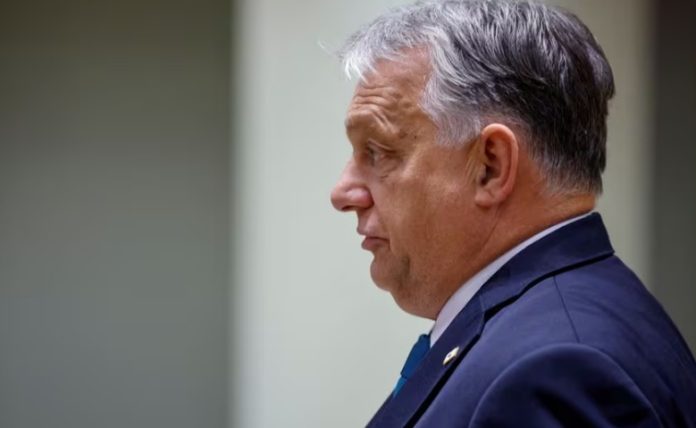Hungary’s prime minister has said that Ukraine’s accession talks with the EU should not move forward because the war-torn country is “in no way ready” to join the bloc.
Prime Minister Viktor Orbán made the remarks on Friday, two days after Brussels recommended the start of EU accession talks. His remarks suggest Budapest could block any formal invitation to Kyiv at a mid-December meeting where EU leaders are due to make a decision.
Orbán has a powerful veto power, as the unanimity of all member states is required to admit a new country to the bloc. Hungary has often complicated EU efforts to support Ukraine in the face of war, although Orbán eventually supported all military and sanctions packages.
The EU’s executive branch, the European Commission, recommended on Wednesday that Ukraine be allowed to start accession talks once it has addressed some shortcomings.
In a speech on his weekly morning programme on state radio, Orbán said Ukraine was not in a position to join the world’s largest trading bloc. He noted:
“Ukraine is in no way ready to negotiate on its ambitions to join the European Union. The clear Hungarian position is that the negotiations must not begin.”
Orbán’s government has refused to supply Ukraine with weapons for the war and has threatened to veto EU financial aid packages to Kyiv. It also accuses Ukraine of violating the rights of the ethnic Hungarian minority in western Ukraine by preventing education in the Hungarian language.
At the same time, Hungary has been engaged in a protracted battle with the EU over alleged violations of rule of law and human rights standards. This has resulted in billions of euros worth of EU funds being withheld.
Hungary is often accused of using its EU veto power to try to extract concessions from Brussels. However, Orban denied that Hungary’s opposition to Ukraine’s EU accession talks was due to a lack of funds. He added that his government “will not accept” pressure from the EU to back Ukraine’s EU accession bid in exchange for an allocation of funds.
Brussels will also consider the risk that the new government in neighbouring Slovakia could also become an obstacle. That country’s newly elected prime minister, Robert Fico, has threatened to end military support for Ukraine and recently called the eastern neighbour “one of the most corrupt countries in the world”.
